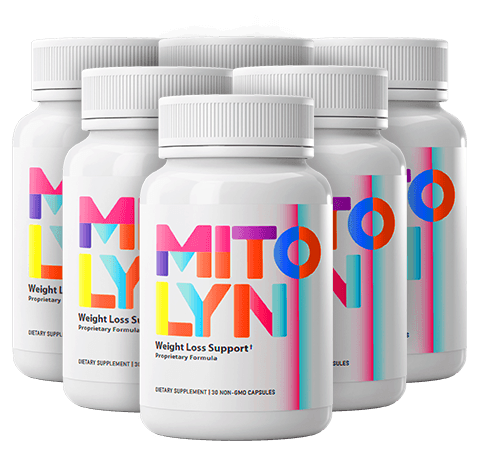
Ever felt excited when starting a new health journey, but then lost that spark? You’re not alone. Many of us set goals to stay healthy, but it’s hard to keep going. Dr. Katy Tapper says being consistent is key.
She suggests planning a 30-minute walk after breakfast or booking exercise classes early. What if making healthy choices felt as easy as brushing your teeth? This article will show you how to make small changes last.
Have you tried swapping ice cream for fruit smoothie pops or taking the stairs instead of the elevator? These changes are more than tricks. They help build your motivation for wellness. By linking your goals to what matters, like more energy for family trips, you can make healthy habits fit your life.
Key Takeaways
- Set tiny wins: Add 5g fiber or 10 minutes of walking daily.
- Pair exercise with joy: Listen to podcasts or dance while cleaning.
- Track progress with apps or journals to see how far you’ve come.
- Swap treats thoughtfully—like yogurt instead of candy—to stay on track.
- Forgive slip-ups and focus on moving forward, not perfection.
Understanding the Psychology Behind Healthy Lifestyle Motivation
Building lasting healthy habits starts with understanding how your mind works.
How Your Brain Processes Habit Formation
Healthy habit psychology shows that routines form through repetition. Your brain’s habit loops (cue → routine → reward) automate behaviors. For example, brushing teeth becomes automatic—not a daily decision.
Small, consistent actions like adding one salad a week create neural pathways. These pathways get stronger over time. Research shows these small steps last longer than drastic changes because they match how your brain health works.
The Role of Dopamine and Motivation
- Dopamine spikes when you achieve a goal, reinforcing desired behaviors.
- Predictable rewards (like post-workout endorphins) boost dopamine and motivation to repeat actions.
- Pair new habits with existing routines to trigger dopamine release naturally.
Why Willpower Alone Isn’t Enough
Willpower limitations mean self-control is a finite resource. Studies confirm that relying solely on discipline often leads to burnout. Instead of gritting your way through diets, design systems that reduce decision fatigue.
- Prep healthy snacks ahead of time.
- Set automatic gym reminders.
These strategies work with—not against—your brain’s natural tendencies. Self-Determination Theory shows that aligning habits with your values (autonomy) and tracking progress (competence) fuels long-term psychological motivation.
Remember: Sustainable change comes from working with your brain’s wiring, not against it.
Common Obstacles to Maintaining Wellness Goals
Even with the best plans, wellness obstacles can stop you. Health goal barriers come from daily life, making it tough to keep going. Let’s look at these challenges and how to overcome them.

Busy schedules and social pressures are big hurdles. A 2023 study found lack of time is a big problem. Health goal barriers also include not having access to healthy food or places to exercise. Feeling burned out or doubting yourself can also make it hard to keep up habits.
- Time: Use 30-minute blocks for workouts. Swap gym visits for home routines or walking meetings.
- Social influences: Share goals with loved ones. Join community walks or virtual fitness groups to stay connected.
- Cost concerns: Opt for free resources—YouTube workouts, park runs, or bodyweight exercises.
“Social support boosts success in dietary changes,” notes a 2021 study. Leverage local clubs or apps to build your support network.
When motivation drops, start small. Try 10-minute walks or 5-minute stretches. Use apps like MyFitnessPal or habit journals to track your progress. Remember, it’s not about being perfect—it’s about moving forward. Every small step counts.
Creating a Personal Wellness Vision That Inspires Action
Building a wellness vision starts with finding your core health values. What does wellness mean to you? Maybe it’s the energy to explore new trails or the confidence to try new recipes. Your health purpose—the reason behind your choices—drives lasting change.
When your daily habits match your values, motivation becomes meaningful.

- Practice future visualization every day. Picture your ideal self in five years—full of energy, strong, and thriving. This mental picture keeps you on track with your purposeful health goals.
- Write a vision statement. Include details like “I’ll hike mountains with my kids” or “cook nourishing meals with joy.”
- Connect small steps to big goals. Choosing stairs over elevators is part of your personal wellness journey.
- Put your vision where you’ll see it every day—a fridge note, screensaver, or journal page. Seeing it daily boosts your commitment.
Change your vision as life changes. Let it grow with you, making sure every choice fits your health values and long-term dreams. This mindset change turns routines into reminders of why your wellness vision is important.
Practical Systems to Sustain Healthy Lifestyle Motivation
Small, consistent systems work better than relying on motivation alone. These health systems turn goals into habits through smart design. Let’s explore tools that simplify choosing well-being every day.

Building Effective Morning Routines
Start your day with a routine that primes your mindset. Try these steps:
- Hydrate first: Drink water before coffee to kickstart metabolism.
- Stack habits: Pair new actions with existing ones (e.g., floss after brushing teeth).
- Plan ahead: Lay out workout clothes or prep meals the night before.
Designing Your Environment for Success
A healthy environment removes barriers to good choices. Here’s how:
| Challenge | Solution |
|---|---|
| Unhealthy snacks in sight | Store fruit on counters; hide processed foods. |
| Late-night screen use | Charge devices outside the bedroom to improve sleep. |
Using Technology to Stay Accountable
Track progress with accountability tech like:
- Wearables: Track steps with Fitbit or heart rate with Oura Ring.
- Goal apps: Use MyFitnessPal for nutrition or HabitBull for habit stacking.
- Smart reminders: Set phone alerts for water breaks or stretch sessions.
Pair these tools with wellness technology to turn intentions into automatic actions. Every system you build makes healthy choices the easy choice.
The Social Component: Building Your Wellness Support Network
Building a wellness community is key. Studies show people with strong health relationships are 40% more likely to reach their goals. Sharing goals with others boosts your social motivation.
Whether through a fitness community or online groups, these networks make challenges easier. They turn them into team efforts.

“Strong work relationships boost purpose by 83%,” according to the American Psychological Association.
- Join local group fitness classes or online forums to find accountability partners.
- Use apps like Strava or Meetup to connect with wellness community members.
- Discuss goals with friends—turn coffee dates into health support check-ins.
Even small steps count. Pairing weekly walks with a neighbor or sharing meal prep tips with coworkers builds supportive networks. When faced with setbacks, lean into these connections.
Research shows social motivation improves resilience. It lowers stress and boosts immune function.
Health isn’t a solo race. By nurturing health relationships, you access oxytocin-boosting bonding that eases stress. Whether through a running group or virtual challenges, every interaction reinforces your journey. Let your tribe be your fuel.
Transforming Setbacks into Stepping Stones

Health setbacks are common. They can happen when we take a break or miss a workout. Instead of feeling like we’ve failed, see them as part of getting better.
A positive health mindset turns these setbacks into chances to grow. It helps build resilience.
Embracing a Growth Mindset for Health
| Fixed Mindset | Growth Mindset |
|---|---|
| “I’ll never stick to this routine” | “What small change can I try next?” |
| Focus on past mistakes | Focus on future improvements |
Learning from “Failure” Without Self-Judgment
When we face overcoming failure, ask: What can we learn? Here’s a checklist:
- Write down what happened without blaming yourself.
- Identify one actionable change instead of total overhaul.
- Reward yourself for reflecting, not just “success.”
The Art of Starting Again Without Shame
“Success is stumbling forward without fear of falling.” – J.K. Rowling
Restart by:
- Practicing self-compassion (you’re human!)
- Reducing goals to 10% of your target (e.g., 10-minute walks)
- Reframing “I failed” to “I paused”
Your health journey resilience grows when you treat setbacks as data—not destiny. Every misstep is a chance to strengthen your approach, not your identity.
Mindfulness Practices That Reinforce Your Wellness Journey

Mindful health begins with small, intentional moments. It’s not about being perfect. It’s about noticing your body and choices. Practices like present-moment awareness help you pause and change habits that get in the way.
Did you know 95% of daily choices happen without thinking? Mindfulness breaks this cycle. Start with mindful eating: pause before meals, breathe, and enjoy each bite. This helps you know when you’re really hungry or just bored.
- Mindful wake-up: Set a 2-minute morning intention with deep breaths.
- Mindful pauses: Use reminders to check in with your needs every hour.
- Mindful movement: Synchronize breath with yoga or walking to boost body awareness.
- Mindful driving: Replace road frustration with 30-second breath breaks to reduce stress.
Stress reduction techniques like these lower blood pressure and sharpen focus. Research shows even 5-minute mindfulness practices improve decision-making. Try mindful workouts by focusing on muscle sensations. This makes exercise feel less like a chore and more like a ritual.
These practices don’t need meditation mastery. Small daily moments of awareness turn healthy habits into intuitive choices. Over time, they create a bridge between your goals and actions. This makes wellness a natural part of life.
Finding Joy in the Process: Making Healthy Living Enjoyable
Your health journey doesn’t have to be a chore. Focus on health journey enjoyment for a positive health experience. Make wellness a fun adventure by enjoying enjoyable exercise and pleasurable nutrition. Let’s find ways to make habits joyful.

Discovering Physical Activities You Actually Love
Forget “no pain, no gain.” Make exercise fun fitness by finding activities you love. Try salsa dancing, kayaking, or gardening. Add music, podcasts, or friends to make it even better. The American Heart Association says to do 150 minutes of moderate activity weekly. So, pick what you enjoy:
- Try 10-minute dance breaks during workdays.
- Join group classes for social motivation.
- Track progress with apps like Strava to celebrate milestones.
Experimenting with Nutritious Foods That Delight Your Taste Buds
Healthy eating should be tasty. Make meals delicious healthy food by trying new flavors. Roast broccoli with garlic and chili flakes, or blend spinach into smoothies. Add spices like cumin or lemon zest to make veggies tasty:
- Swap chips for roasted chickpeas with paprika.
- Shop at farmers’ markets for fresh, seasonal produce.
- Keep a “flavor journal” to track dishes you love.
Celebrating Non-Scale Victories
Track wins beyond the scale. Celebrate non-scale victories like better sleep, clearer skin, or more energy. These small wins help you stay strong. Research shows happy feelings are good for your heart and life:
- Write down 3 daily wins (e.g., “I felt energized after yoga”).
- Strive for a 5:1 ratio of positive to negative emotions daily.
- Share victories with a friend to amplify joy.
Sustainable Approaches to Healthy Lifestyle Motivation
Building sustainable health habits starts with small steps. Start with realistic health goals like drinking seltzer instead of soda. Or add one more veggie to your meals. These consistent health practices help you stay on track.

“The average habit forms in 66 days—proof that patience beats perfection.” — American Journal of Public Health
| Quick Fixes | Sustainable Habits |
|---|---|
| Extreme diets | Adding fiber-rich snacks |
| Overnight transformations | Walking 10 minutes daily |
| Skipping meals | Meal prepping on Sundays |
Try these lifestyle integration strategies:
- Start with one change weekly (e.g., replacing soda → save 20g sugar daily)
- Track progress with a journal or app to boost long-term motivation
- Pair with a “lifestyle buddy” for accountability
Programs like the six pillars of lifestyle medicine show that maintainable fitness comes from good habits. Focus on sleep, nutrition, and movement as part of your routine. Celebrate small wins like better energy or sleep.
Remember, lasting change comes from consistent health practices that fit your life. Not the other way around.
Conclusion: Embracing Your Unique Path to Wellness
Your wellness journey is as special as your fingerprint. It’s not about copying others but creating a customized healthy lifestyle that suits you. Even with the same habits, everyone’s body is different. So, celebrate your own unique health path.
Let go of plans that don’t fit you. Instead, build a tailored fitness plan that makes you feel good. Use strategies like mindful morning stretches or the Colorful Plate Philosophy to enhance your holistic wellness path.
Pair healthy foods with short workouts and make sleep a priority. This fuels your body and mind. Your personal health approach gets stronger when you link habits to values like energy or joy. Celebrate small victories, like choosing a healthy snack or stretching for a few minutes.
Find unique ways to stay motivated, like dancing while cooking or using a gratitude journal. Every choice you make today, no matter how small, helps you move forward. Start where you are, trust your body, and keep improving your approach. Wellness is a journey of self-care that feels real and lasting.
FAQ
What are some of the most effective ways to boost my motivation for a healthy lifestyle?
To boost your motivation, start by creating a wellness vision that matters to you. Building routines and using tech for tracking can also help. Plus, having friends who support you is key.
How does understanding the brain’s process of habit formation help in maintaining healthy behaviors?
Knowing the habit loop—cue, routine, reward—helps you build good habits. By linking cues to positive actions, you make lasting changes. These changes become easy over time.
Why is dopamine important for sustaining motivation in health-related goals?
Dopamine makes you feel good and excited. By making health routines fun, you use dopamine to stay motivated. This helps you stick to healthier habits.
What common obstacles should I anticipate when trying to maintain my health goals?
Expect busy schedules, social pressures, and inner doubts like perfectionism. Knowing these challenges helps you solve them before they happen.
How can I create a personal wellness vision that helps me stay motivated?
Think about what health means to you and dream of a healthy future. This connects your daily actions to your big wellness goals. It keeps you motivated, even when progress is slow.
What practical systems can I implement to sustain my motivation for a healthy lifestyle?
Start with good morning routines and a supportive space. Use tech to track your progress. These systems help you make healthy choices without needing willpower all the time.
How can social connections impact my health motivation?
A supportive group can really help your health goals. Being around people who share your goals makes it easier to stay on track. They offer encouragement and help you stay accountable.
How should I approach setbacks in my health journey?
See setbacks as chances to learn and grow. Understand what led to them without being too hard on yourself. Start again with kindness to yourself and the lessons learned.
What mindfulness practices can enhance my wellness journey?
Try body scan meditation, mindful eating, and being present. These practices connect your mind and body. They make you enjoy healthy choices more and reduce stress.
How can I make healthy living an enjoyable experience?
Find physical activities you love and try new, tasty healthy foods. Celebrate small wins to enjoy the journey, not just the end result. This makes wellness a fun part of your life.
What are some sustainable approaches to healthy lifestyle motivation?
Focus on the smallest steps that work for you. Pace yourself and make health a part of your daily life. Aim for small, steady changes for lasting success without getting burned out.















